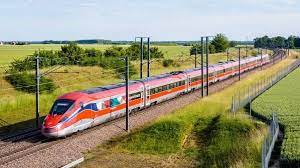Italy: Palermo-Catania rail upgrade project gets €3.4bn funding

Rome: The European Commission (EC) has announced the allocation of €3.4bn for the modernisation of the Palermo-Catania rail line in Italy.
This includes €2.1bn from the European Investment Bank (EIB), which will be provided in two parts.
EIB will offer €800m in direct financing to the Ministry of Economy and Finance (MEF), of which the first €200m tranche has already been implemented.
The bank will also provide a €1.3bn counter-guarantee, formed in conjunction with Ferrovie dello Stato Italiane, in favour of financial intermediaries.
It has allocated the initial €500m of this sum to Intesa Sanpaolo bank, while €300m has been offered to Cassa Depositi e Prestiti (CDP), the Italian National Promotional Institution and the Financial Institution for International Development Cooperation.
Other financial intermediaries will receive the remaining €500m.
Owing to the 50% counter-guarantee supported by the InvestEU programme, guarantees from financial institutions equal to double that of EIB’s commitment can be generated, making €2.6bn of total guarantees available for the activation of construction contracts and work commencement.
This adds to the €800m in direct financing available to the MEF, for a total amount of €3.4bn.
To facilitate investments for the rail line, around €1.4bn in financing will be provided under the Recovery and Resilience Facility (RRF).
The upgrade of the 178km line is expected to lower existing journey times by a third and connect the cities of Fiumetorto and Bicocca, with a direct two-hour rail service.
Designed to link the northern and eastern coastal urban areas of Sicily with the interior of the region, this infrastructure project is part of the Scandinavia-Mediterranean Corridor of the trans-European transport (TEN-T) network.
Freight and passenger trains will cut down travel times on this route by nearly one hour by operating at a top speed of 200km/h.
EIB vice-president Gelsomina Vigliotti said: “The TEN-T network, which includes the Palermo-Catania line, is intended to promote the European single market, helping to reduce the environmental impact of transport, improving energy efficiency and increasing safety.”





